In many ways, dairy farms are the cornerstone of Maine’s farming community. Dairy farmers steward large tracts of farmland for feed and forage, while supporting the feed stores, equipment retailers, and large animal vets that all Maine farms rely upon. Of the 400,000 acres of farmland that will be in transition over the course of the next decade, we anticipate that a large percentage of that land is currently in dairy farming. What will happen to that land, and the infrastructure and communities it supports?
While farming in Maine is growing, Maine’s dairy industry has not seen the same growth. The younger generation who are choosing to be dairy farmers are few and far between, often deterred by low milk prices and high start-up costs. Those who have bucked the trend and have decided to become either first-generation dairy farmers or to continue their family’s farm, have an important role to play in ensuring that dairy farms remain the foundation of Maine’s farming landscape.
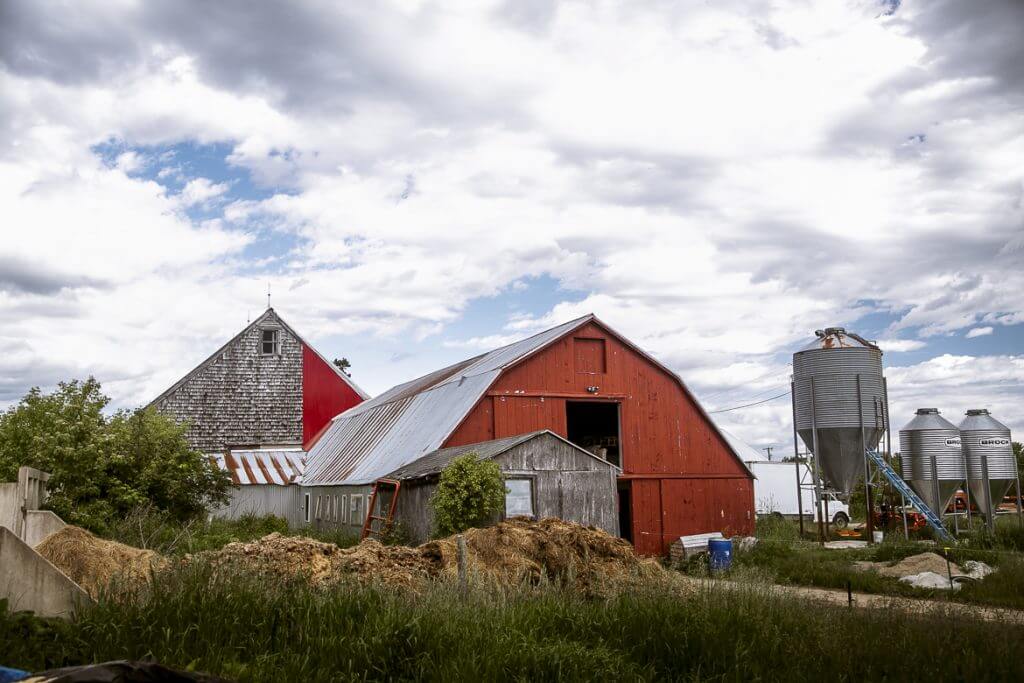
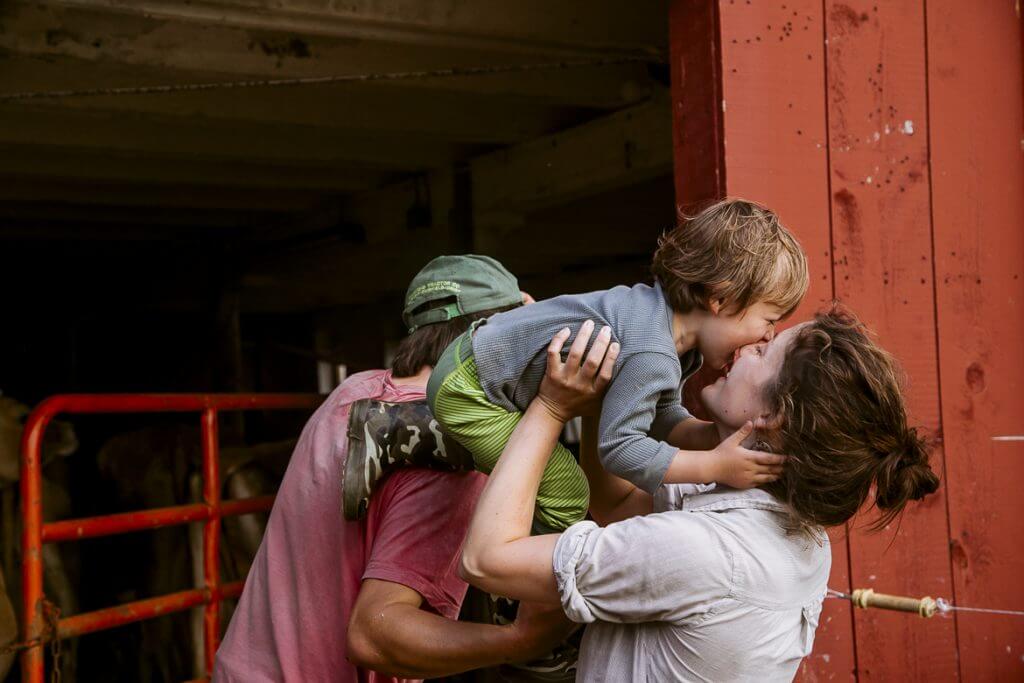
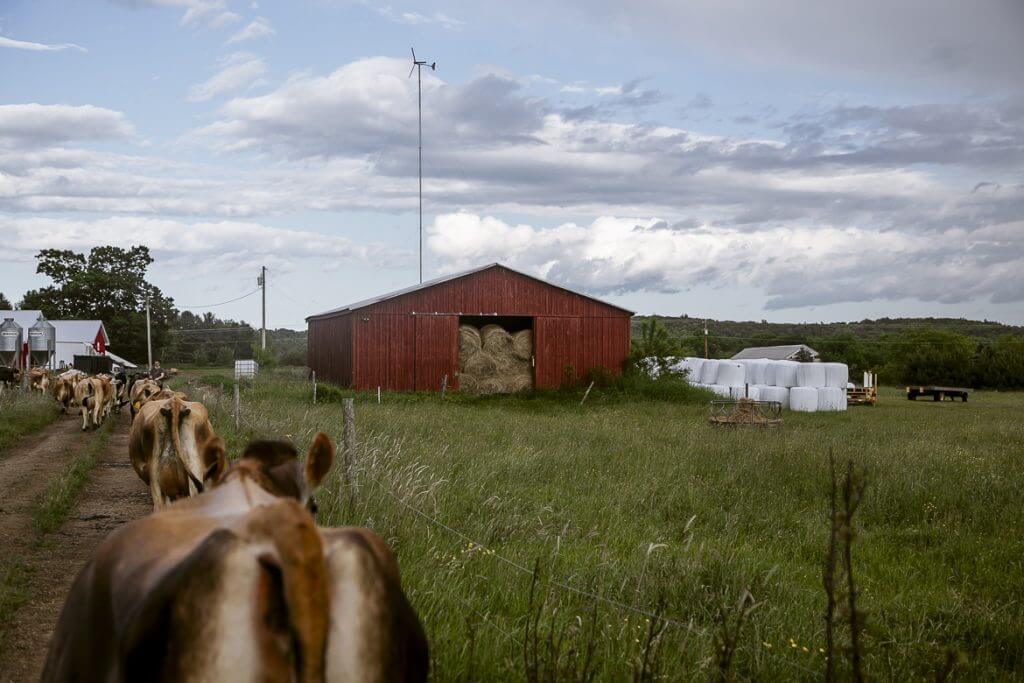
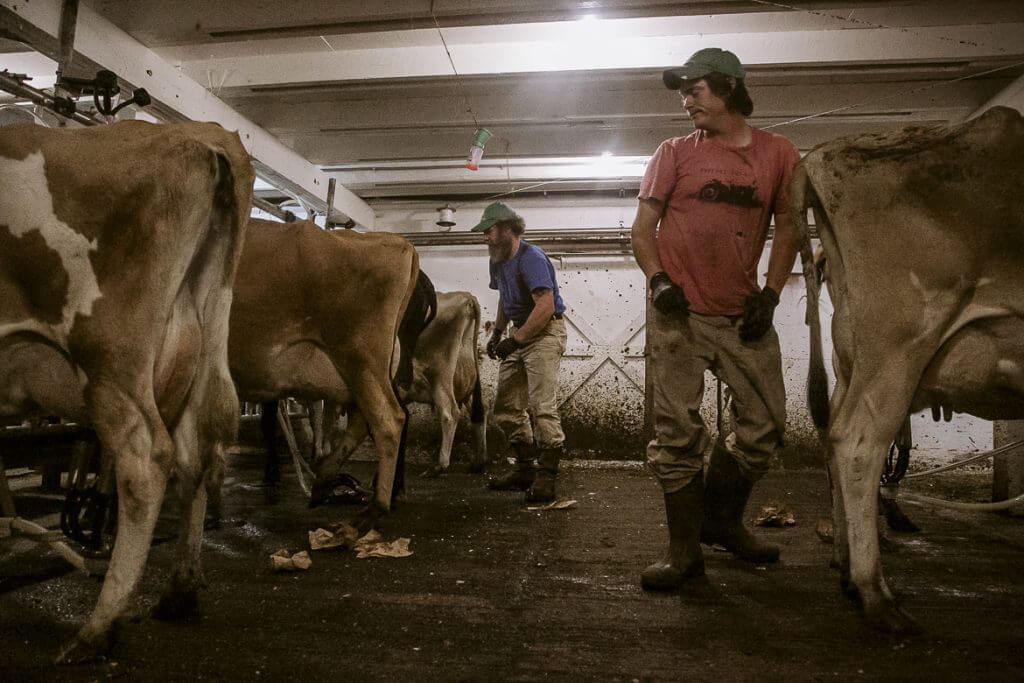
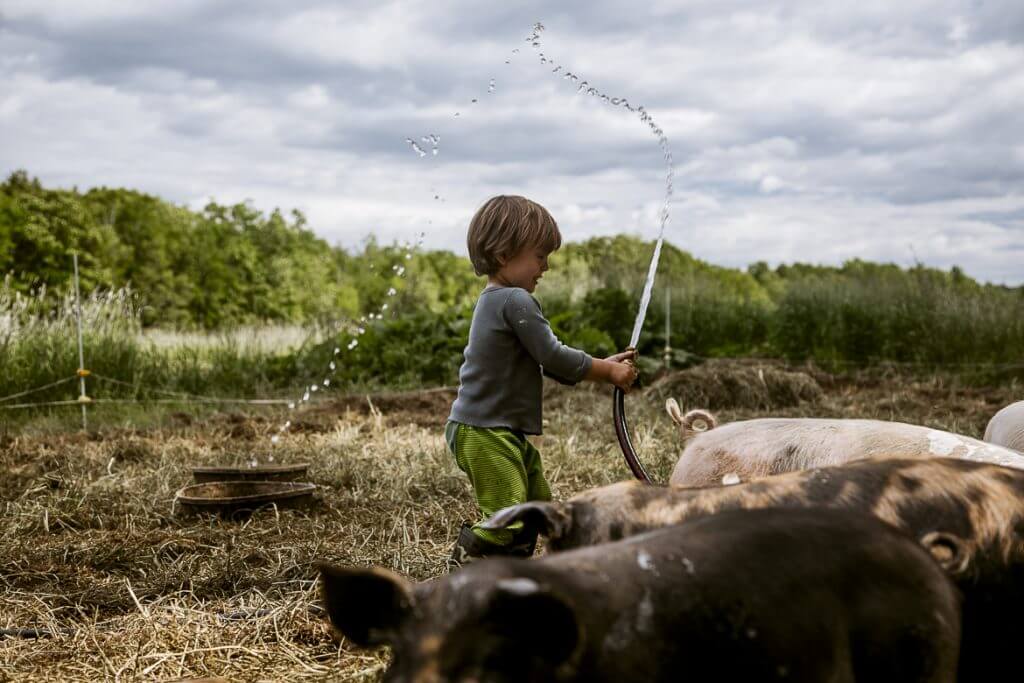
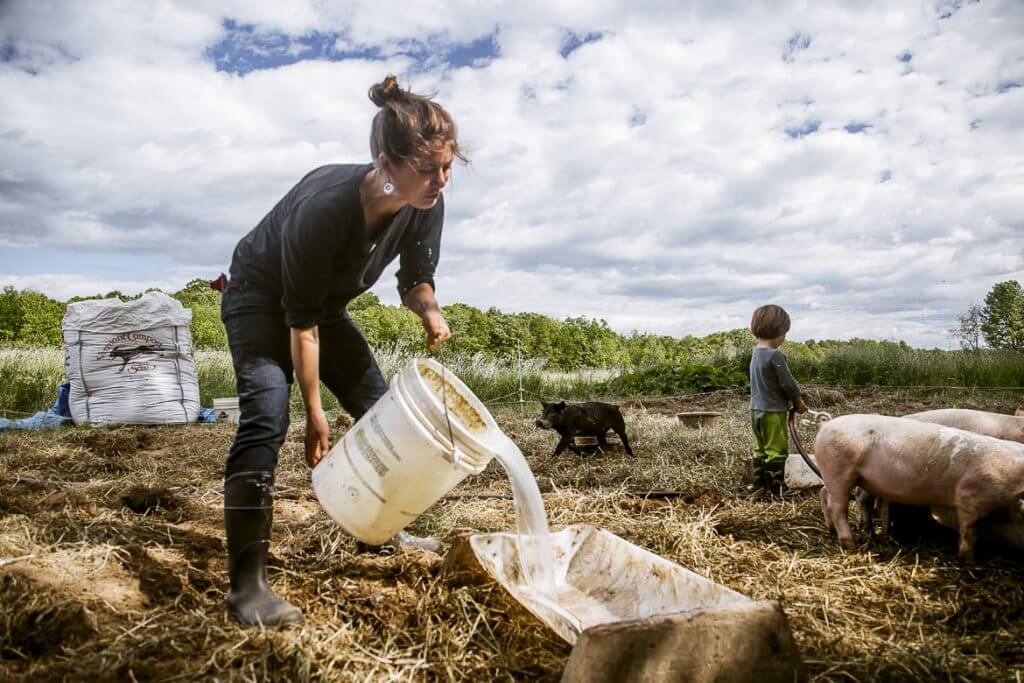
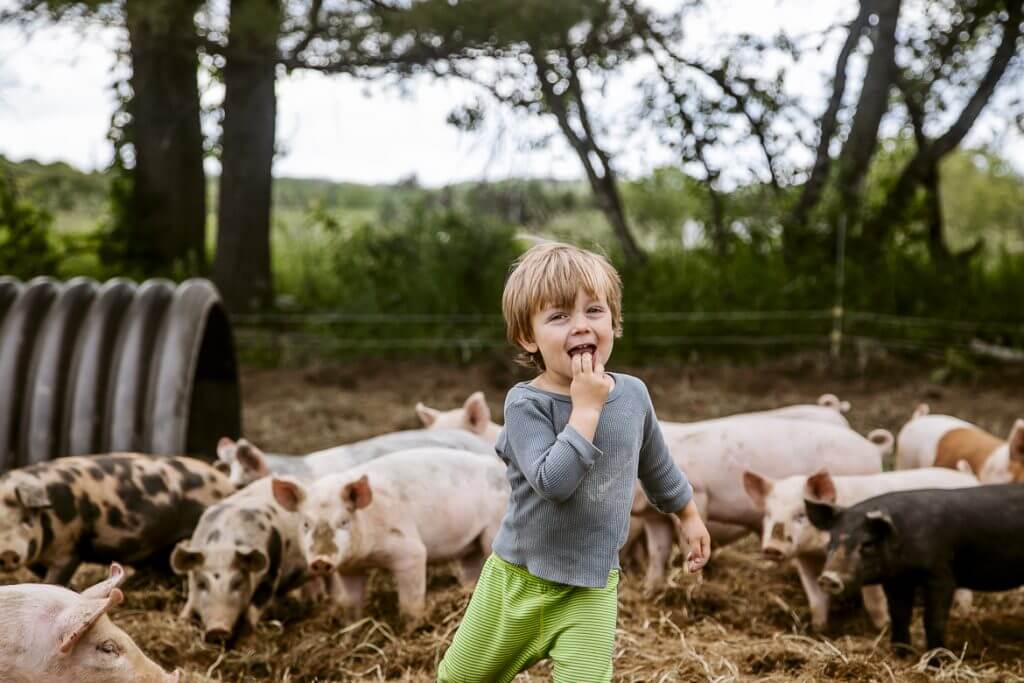
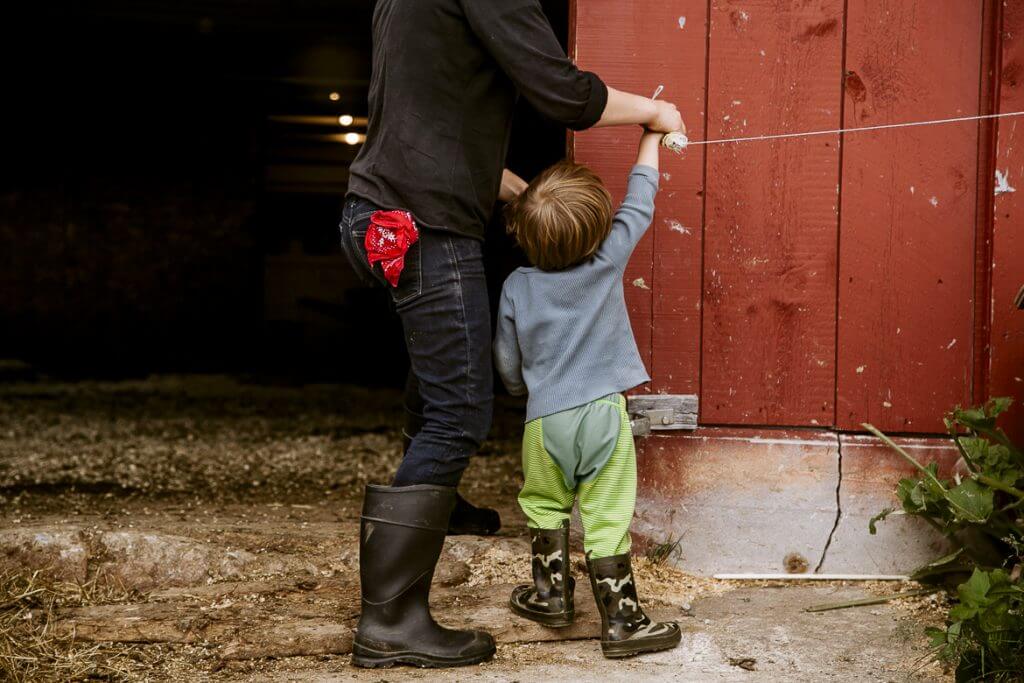
Caitlin Frame and her young son Linus are in charge of the pig chores at their farm. Together they carry buckets of whey and bags of feed out to the pasture, and once there, it’s a matter of minutes until they are both covered with splashes of mud, milk, water, and grain dust. It’s a messy job, and a lesson in teamwork-- an essential element in operating a small, diversified dairy farm.
Caitlin, her partner Andy and Linus own and operate The Milkhouse, a certified organic farm and creamery in Monmouth, where they produce milk and yogurt, as well as pork, beef, and eggs. They sell their bottled milk and yogurt to stores across the state, have a farmstand in their barn, and sell fluid milk to Horizon Organic. For Caitlin and Andy, producing good food “is extremely gratifying work. It’s amazing to think of all the people who are nourished by what we produce on our farm. All that milk, meat, yogurt, that incredibly rich, nourishing animal protein starts with just sun, soil, grass, water, and we get to be part of stewarding it.”
As with many farms, the success of The Milkhouse farm depends on a broad community -- family, fellow farmers, service providers, customers and consumers. Caitlin and Andy farm cooperatively with their neighbors Gregg and Rhiannon of Grace Pond Farm. “We share land, advice, and other resources,” said Caitlin. The dairy farm also employs three other full-time employees and all share in the task of raising animals “with all the space and freedom to behave as cows, pigs and chickens will,” and producing delicious food.
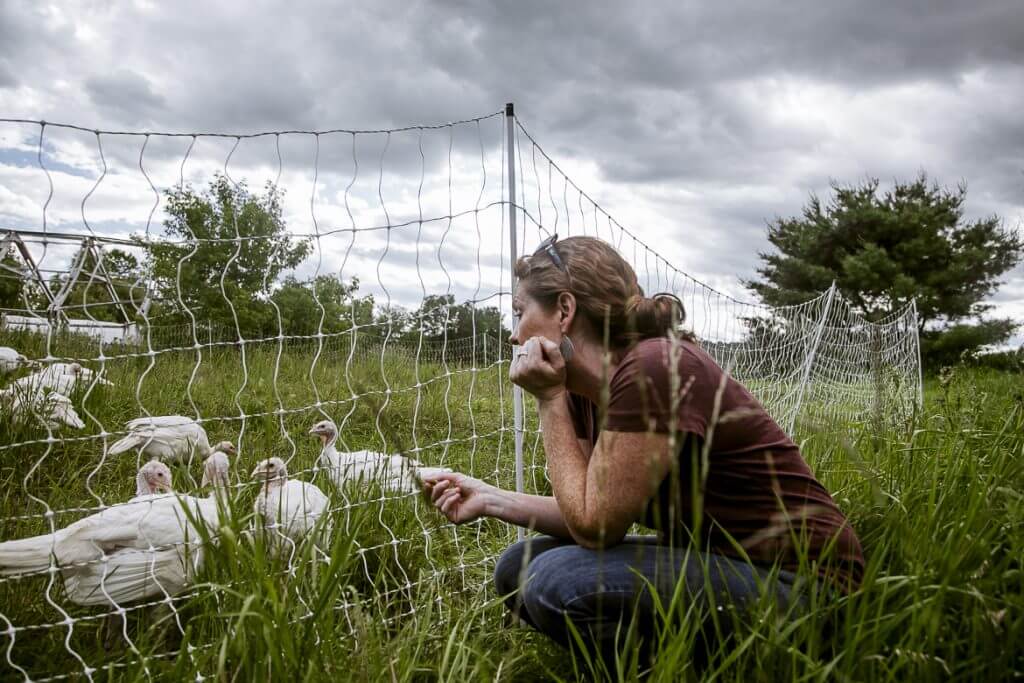

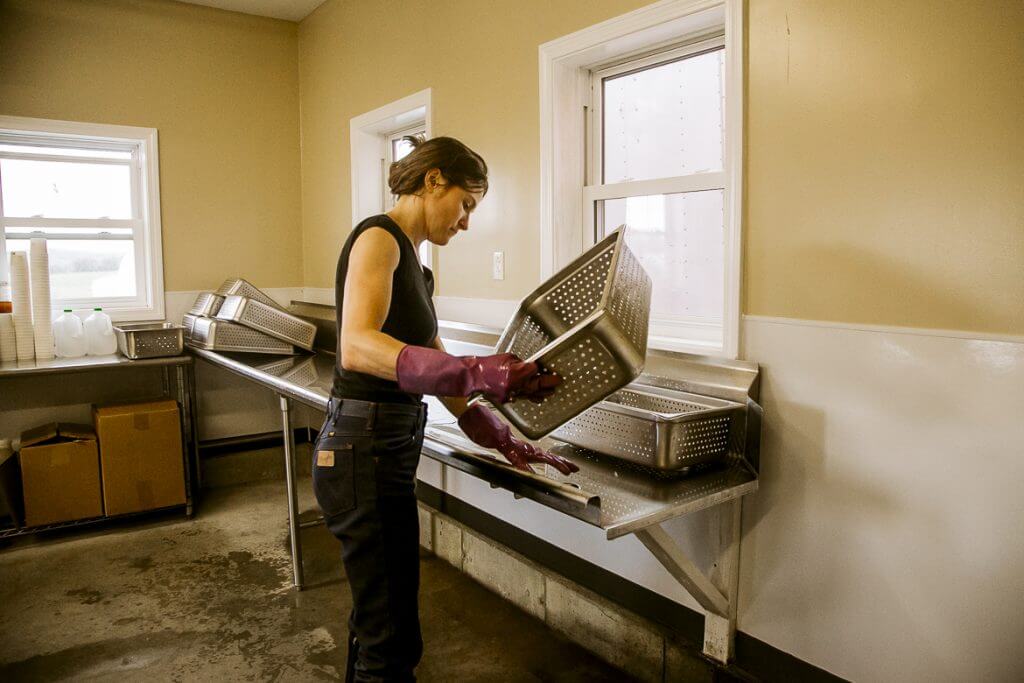

As the resident farm kid, Linus also has the space and freedom to explore things that children who don’t grow up on farms might miss. He “loves riding on the tractors and playing with livestock. Nowadays most kids only have these experiences at agricultural fairs, but Linus gets to have them daily. He sees birth, the first steps of baby cows, and also death on a near daily basis--we feel so lucky that he has these elemental experiences.”
Caitlin and Andy feel fortunate to be able to pursue their dairy farming dreams. The support of organizations like MOFGA and MFT helped them access education, and eventually, a farm of their own. When they think about the future dairy farms in Maine, their hope is that “small and midsize dairy farms can become profitable again. The organic market is giving these family farms new life, and we hope that continues in the future. We're counting on it. And we're counting on organizations like MFT to make the large land base necessary for such operations accessible.”
Farming is tough, and dairy farming is particularly challenging. Young families like Caitlin and Andy, who are taking on the challenge wholeheartedly, and are building community in the process, spark hope for the future of the industry and in turn for Maine’s farm and food system.
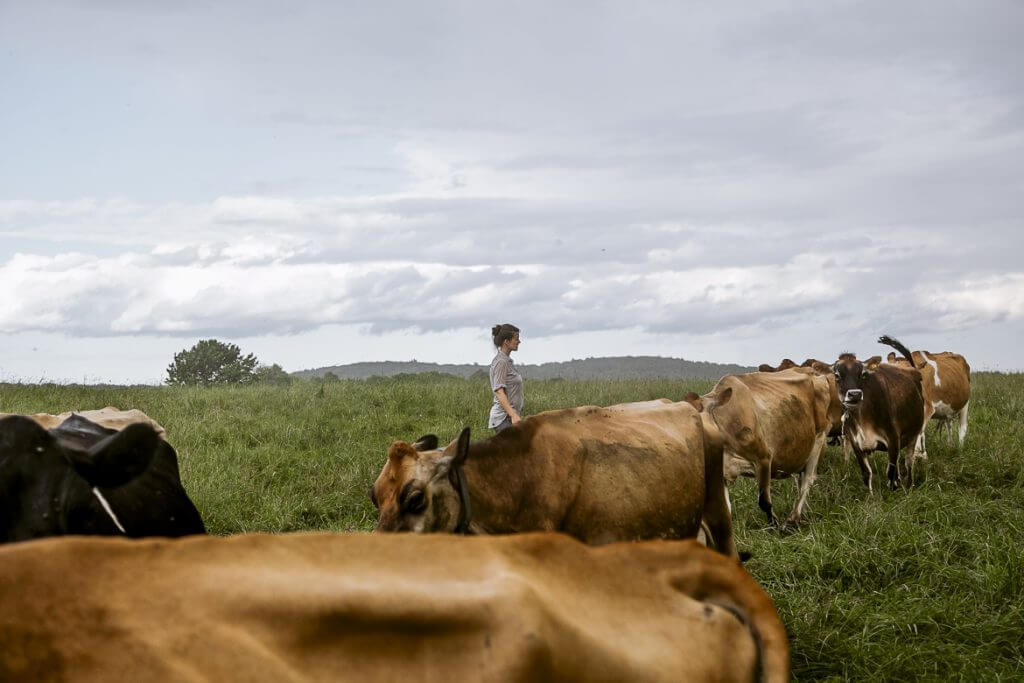
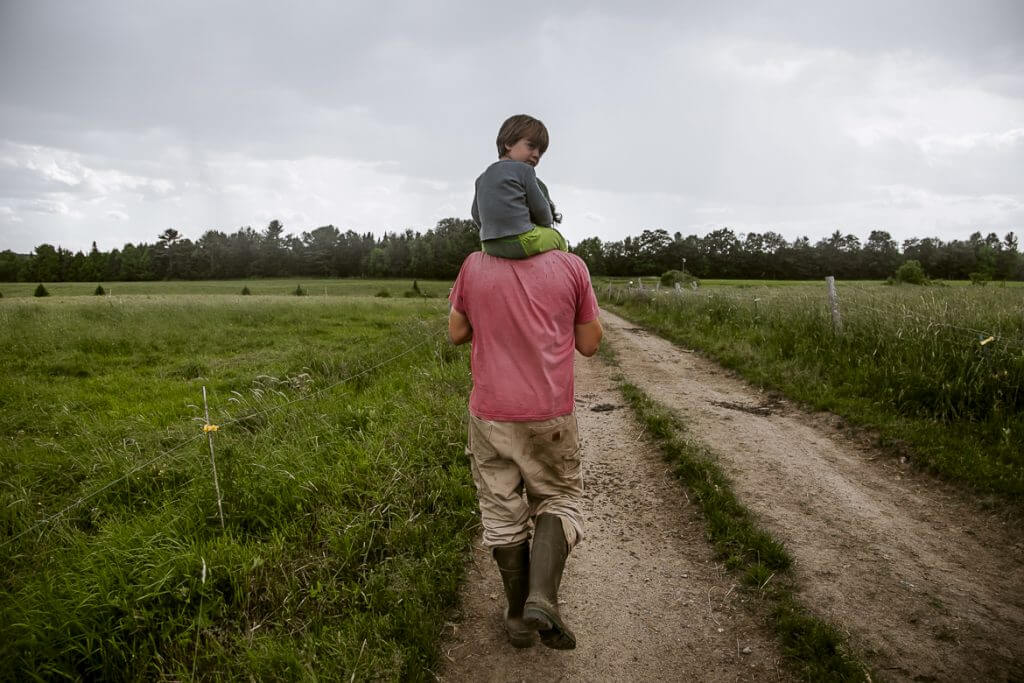
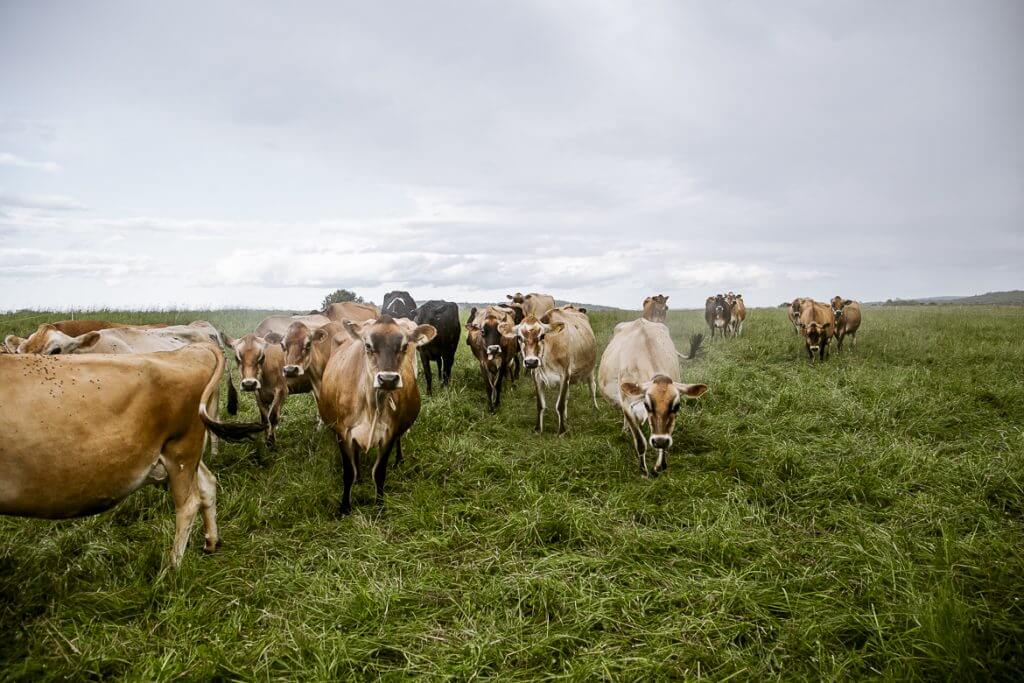

You can find The Milkhouse’s YOGURT AND MILK at these locations and at their farmstand in Monmouth.
Sign up for our monthly email newsletter.